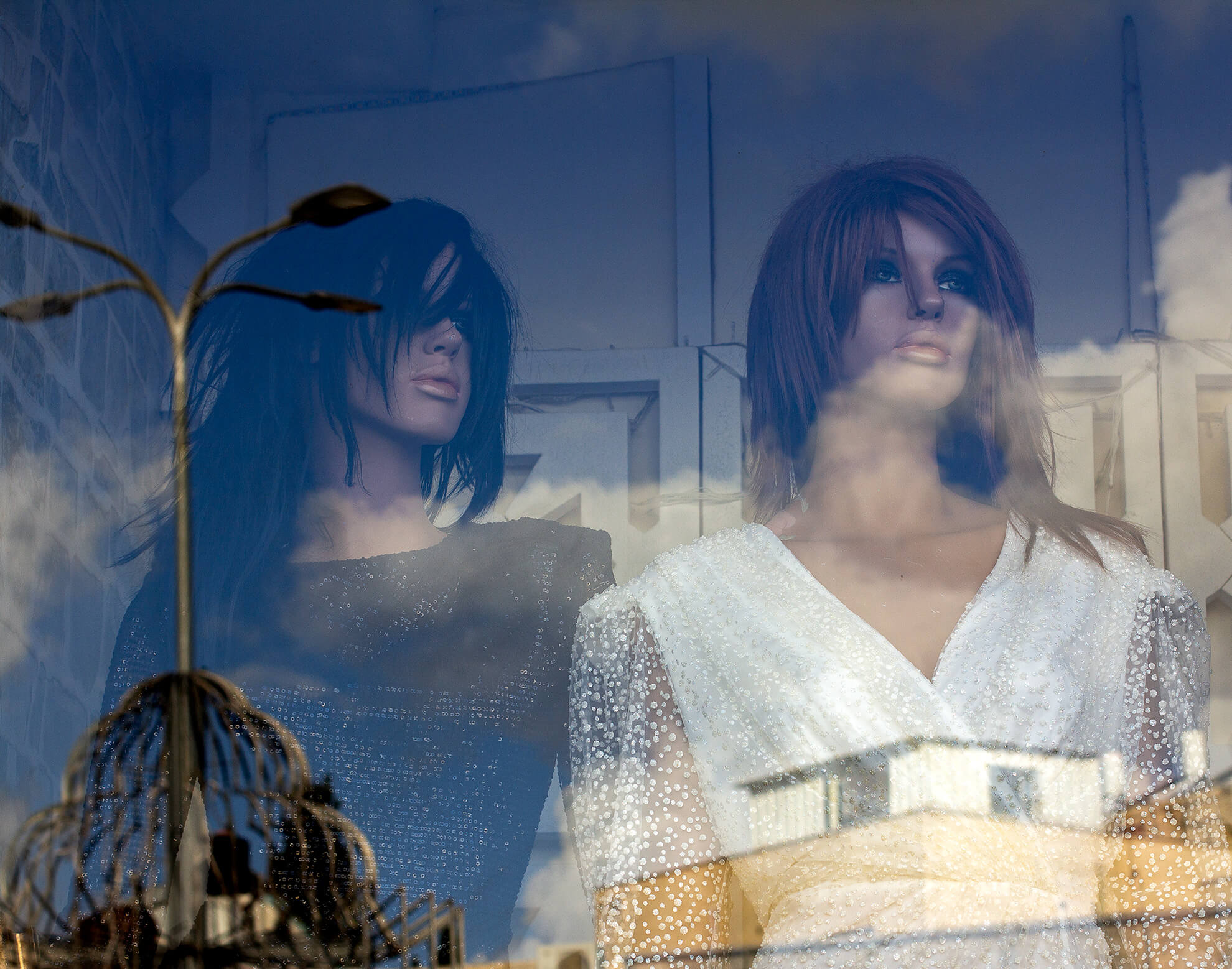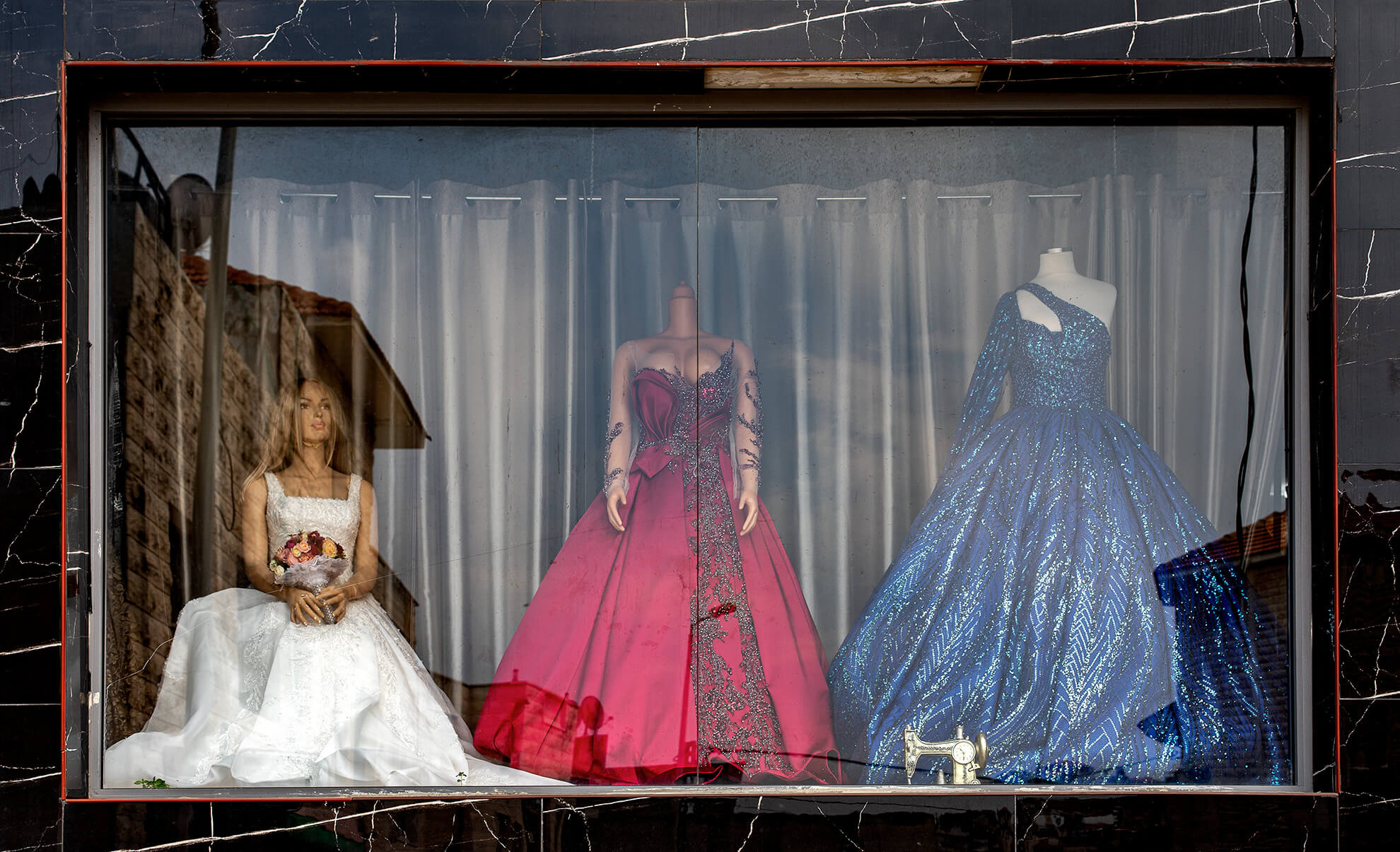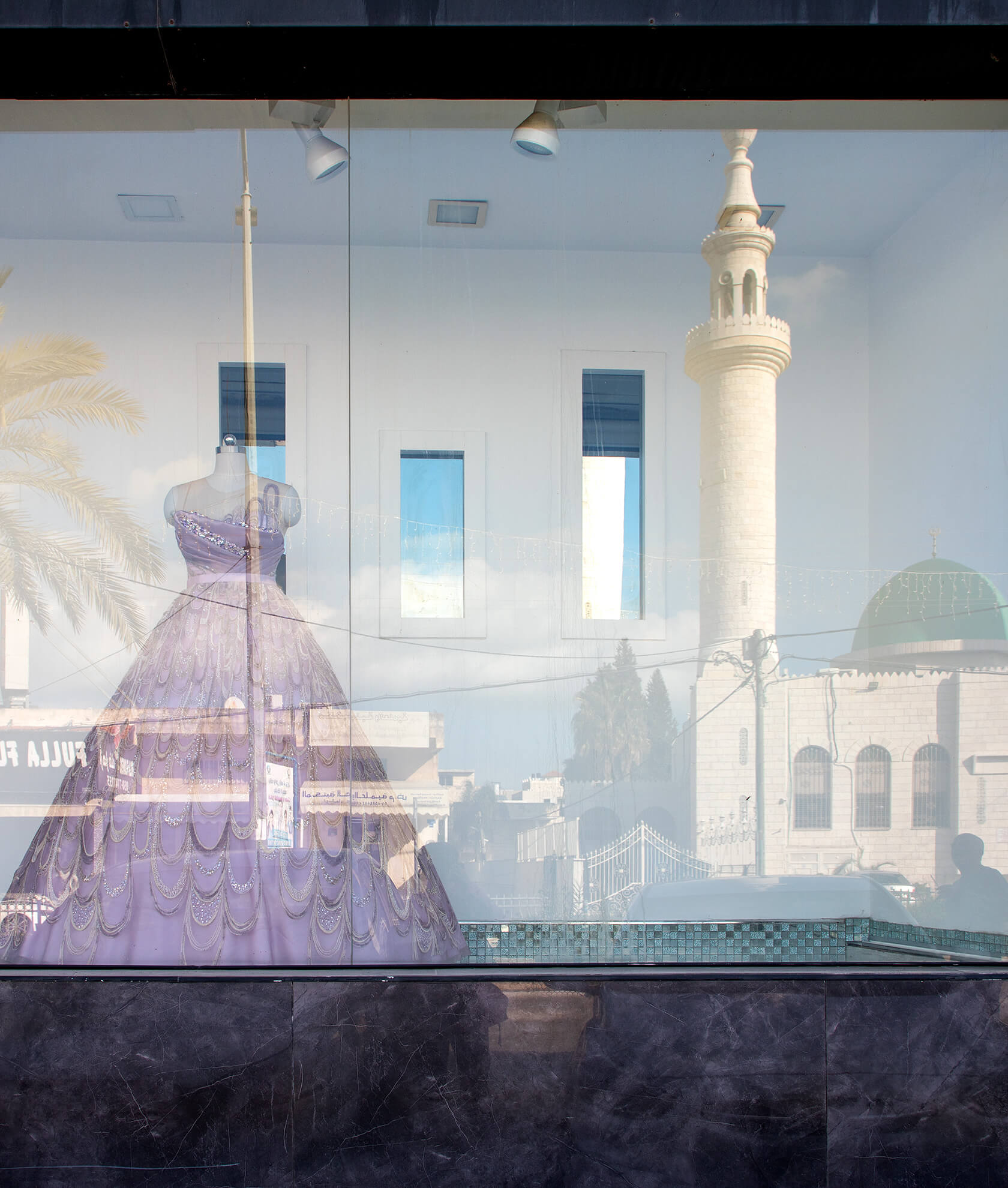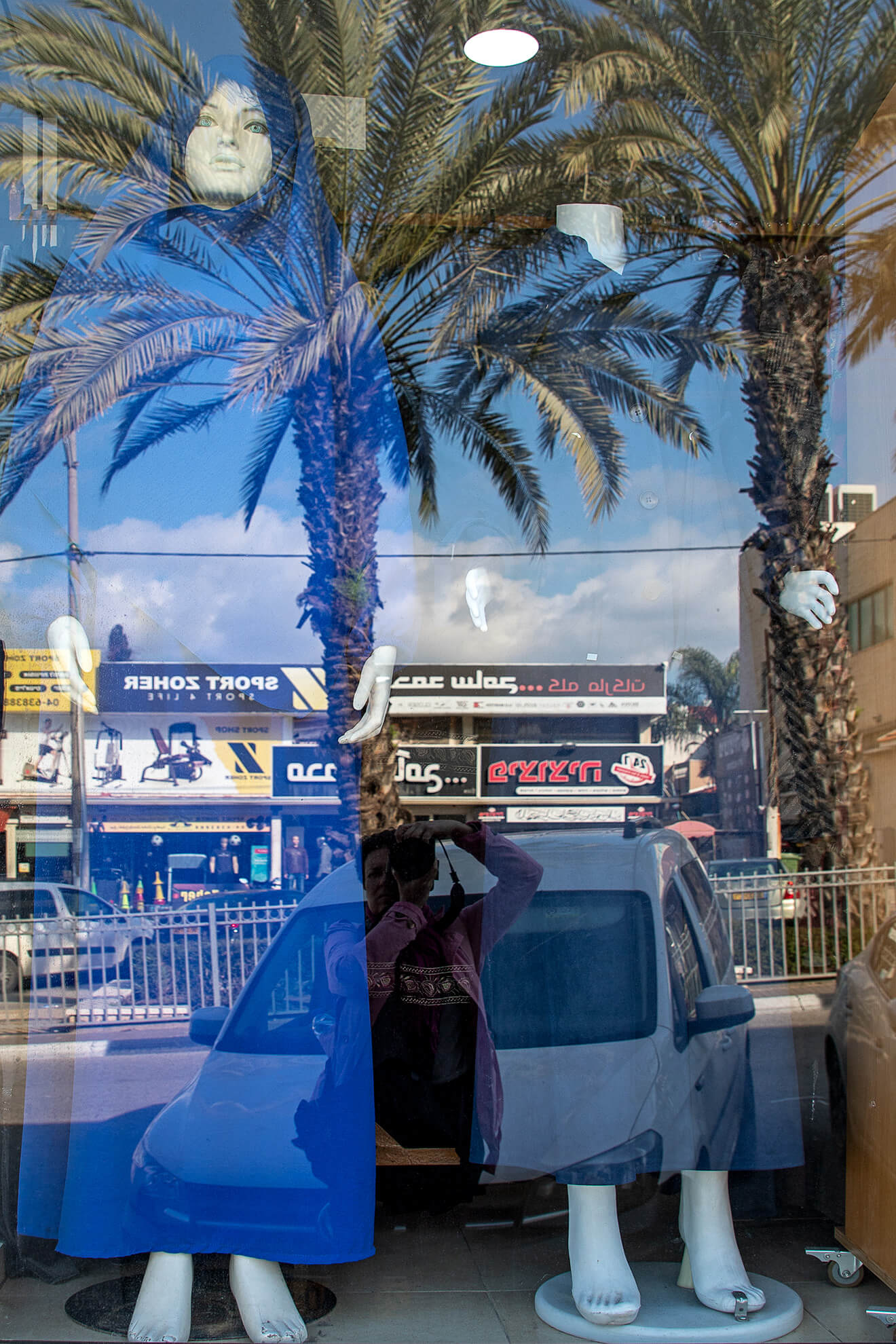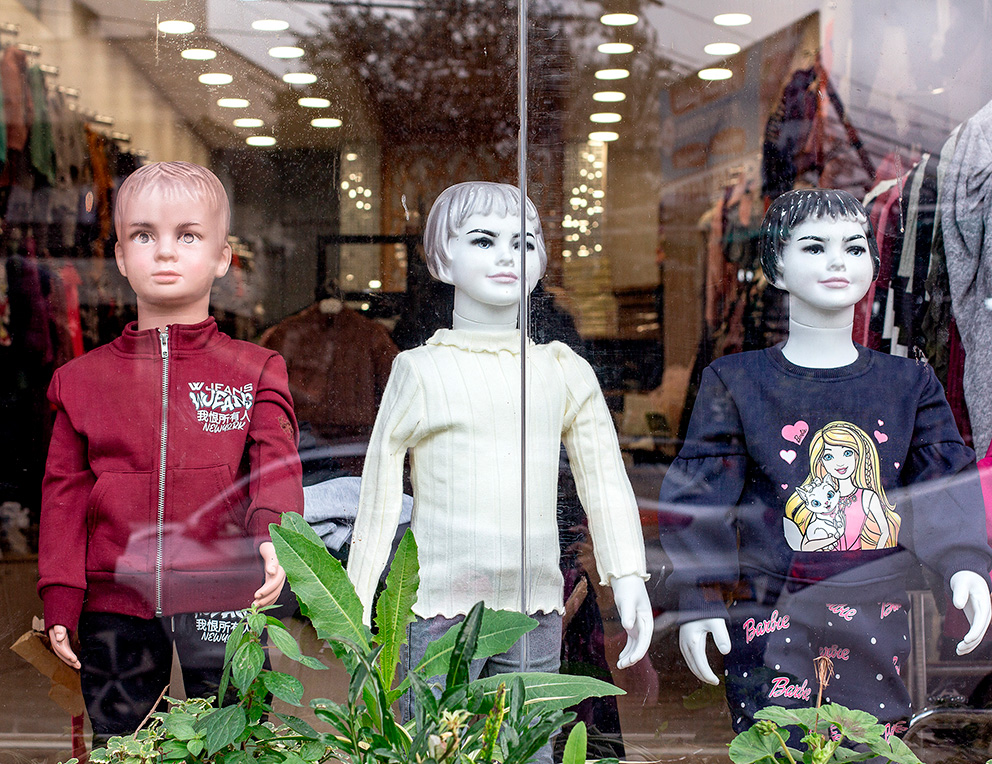Dolls and Dreams, Wadi Ara, Israel
Five selected photographs from a series of fifty-five photographs. The series focuses on shopfronts in Arab communities of Wadi Ara – Baqa al-Gharbiyye, ‘Ara, Kfar Qara, Arara, and Umm al-Fahm. The complete series is published in the artist’s book Dolls, Wadi Ara (Itay Bahur Publishing, 2025), with accompanying texts in English, Arabic, and Hebrew.
Read More
The photographs were taken from January to April of 2024, during the War in Gaza. Perhaps it is the unusual circumstances – the pervasive sense of disaster amplified by the war – that make it difficult to ignore the small, everyday horrors present in the dolls. These horrors are common to human existence, to living in a nation constantly engulfed in existential conflict, to the unique challenges faced by a minority group in this reality, and to the artist’s personal biography as the daughter of refugee immigrants who grew up in a run-down urban setting, where storefronts evoke emotions akin to those stirred by the scenes captured on camera.
The photographs are one of a kind, blending the store’s interior with the outside world. The glass of the shop window reflects the street, cars, and passersby. Among the emblematic elements of Arab culture are a mosque, a palm tree, a bright sun, and other symbols. The artist’s reflection, which appears in many of the photographs and forms one of their defining traits, is present-absent – whether between the dolls, beside them, or underneath them.
Store owners, village residents, and the artist use the dolls to project, reflect, and express their cultural and aesthetic preferences, as well as their desires, fears, and hopes. In addition to their primary function of displaying goods for sale, the dolls facilitate a secret dialogue – unnoticed by most – between the new and the old, tradition and values, individual and society, coercion and freedom, modesty and boldness, and the decline of femininity and its manifestation. The apparel shown in the shop windows reflects the tension between conservative, traditional notions and modern, liberal values, particularly regarding the status of women in Arab society.
